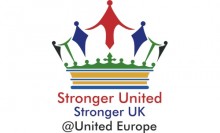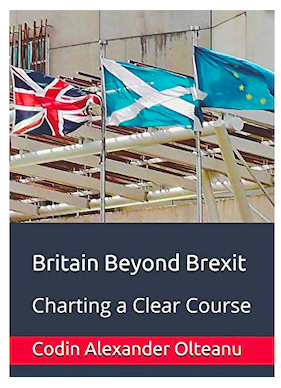The European Economic Community / European Union's attitude towards UK membership has been just as ambiguous and hesitant as has been Britain's willingness to join it. Having decided not to be one of the founding members of the EEC and not to sign the Treaty of Rome of 1957, Britain then changed its mind and twice applied unsuccessfully to join the EC in the following decade. Both times its application was vetoed by President Charles de Gaulle of France who saw the UK as an American Trojan horse that would bring with it a different history, a different culture, different legal traditions, and above all a different agenda: slowing down European integration and weakening the most important stated goal of the Treaty of Rome - that of “an ever closer union of the European peoples”.
In many ways he has been proven right. Ever since Britain acceded to the EEC in 1973 the main objectives of successive British governments of both Labour and Tori persuasion has been to ensure that the EEC / EU remained primarily a common market for independent and sovereign states, and to block any attempts by its continental members to build a supranational state with cohesive and coherent military, enforcement, social, legal, and above all political institutions. Today's continental members of the European Union are well aware of being blackmailed by David Cameron at their hour of greatest need into offering concessions they do not wish to make to Great Britain in order to stave off the first step in what they perceive to be a dangerous process of this integration that could cascade from the Channel across the entire continent, all the way to the Russian border. Germany in particular - who has had to wear the brunt of the recent financial economic and migrant crisis in Europe - sees with ill will Britain's continuing attempts to block further economic, social, and political integration of Europe. Many of its leaders have stated in clear and unambiguous terms that the UK can no longer straddle the Channel Hamlet-like with one foot in the European Union and another in Britain - by wishing both to be in the EU and to block the EU from become a key global player in the 21st century.
They demanded that Britain finally make up its mind whether it wishes “to be or not to be” an active member of the European Union together with its 27 Continental partners. France and Italy have demonstrated similar concerns; they resent in particular Britain’s attempts to insulate the City of London from common European financial rules and regulations and from the famous equality of treatment of all EU citizens. Finally countries in Europe’s Mediterranean region - Spain, Portugal, Greece – as well as the member states of the Visegrad Four - Poland, Slovakia, Czech Republic, and Hungary – together with Romania and Bulgaria deeply resent Prime Minister Cameron's blatant attempt to discriminate against their citizens in terms of employment opportunities and social benefits and to portray these EU citizens as ‘mere economic migrants’ so as to exclude them - or any rate to limit them from entering in such vast numbers the British labor market.
At the institutional level of the European Council, European Commission, and European Parliament Britain sees its role increasingly marginalized by Cameron's ideological anti-EU positions that have led to progressively diminished British influence in all three institutions. In the European Parliament the rise of the UKIP as Britain's largest Euro-parliament party has transformed the UK - and the Cameron government - into a sort of a role model for all the nationalistic ideological and anti-EU parties represented therein that are currently undermining not only the institutional role of the EU Parliament itself but the very future of the European Union.
In the European Council Britain’s lengthy and acrimonious debates regarding its renegotiated demands for membership in the EU, in particular with the Visegrad Four in Central Europe and with President Hollande of France highlighted our increasing isolation among our partners and colleagues and their mounting disillusionment with Cameron’s position on Europe. This was amplified by European Council President Donald Tusk’s comments just prior to the decisive February 19, 2016 meeting of the European Council in Brussels that the failure of the European project was a distinct possibility if all 28 member states did not decide to work together - buy this of course referring primarily to Great Britain. Finally German Finance Minister Schäuble remarked that if the UK voted for separation from the EU there would be no second chance for it to re-renegotiate new terms of membership with the European Union –thus drawing a clear red line for the United Kingdom.
For the foreseeable future, and in light of the recent crisis that shook the EU to its core and brought it closer to collapse than at any time since its foundation, the members of the European Project will hold Britain on notice that the renewed membership terms offered to David Cameron represent the last concession they are willing to make in order to keep us firmly anchored within the European family of nations.
The 27 continental EU member states are all claiming to move in the direction of building more efficient, effective, and accountable common institutions in the field of safety and security as well as of economic finance and financial services regulation, in order to avoid in the future similar crises as those we had to face from 2008 onwards. To achieve these objectives they state that they are determined to work towards “ever closer union”.
The renegotiated UK membership terms in the EU can properly be seen as a last ditch, desperate attempt by the EU to accommodate Great Britain’s demands whilst at the same time remain committed to go on with its deeper integration plans. We must grasp firmly the EU’s outstretched hand and seize on its sincere desire to accommodate Cameron’s demands by massively voting to stay in the EU at the upcoming Brexit referendum on June 23, 2016 and ensure that Great Britain within the larger European family.
This leads us directly to the upcoming 2019 EU Parliament elections and beyond that to the need for a reformed Europe. The EU is beyond doubt in urgent need to be opened up, democratized, rendered more effective, more efficient, and more accountable. It is our historic mission and our responsibility to our forbearers, to our children, and to ourselves that we do not shirk from this: Britain fully expects us all to do our duty.

